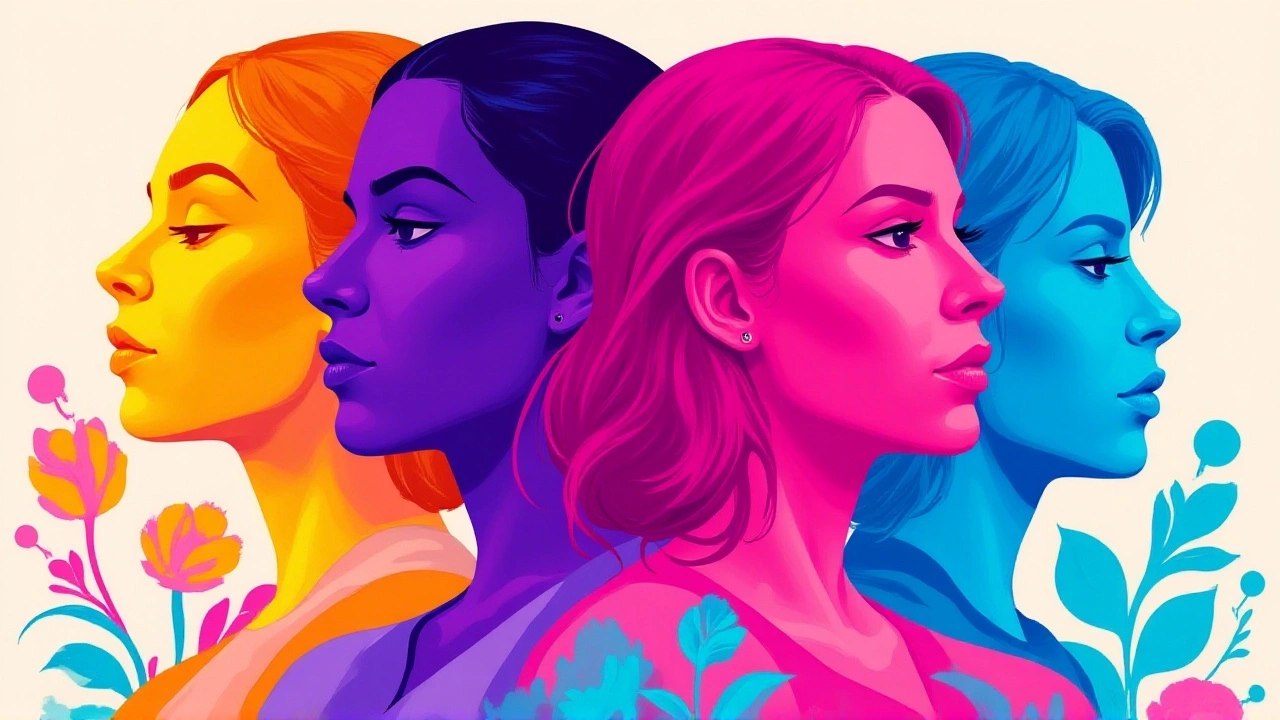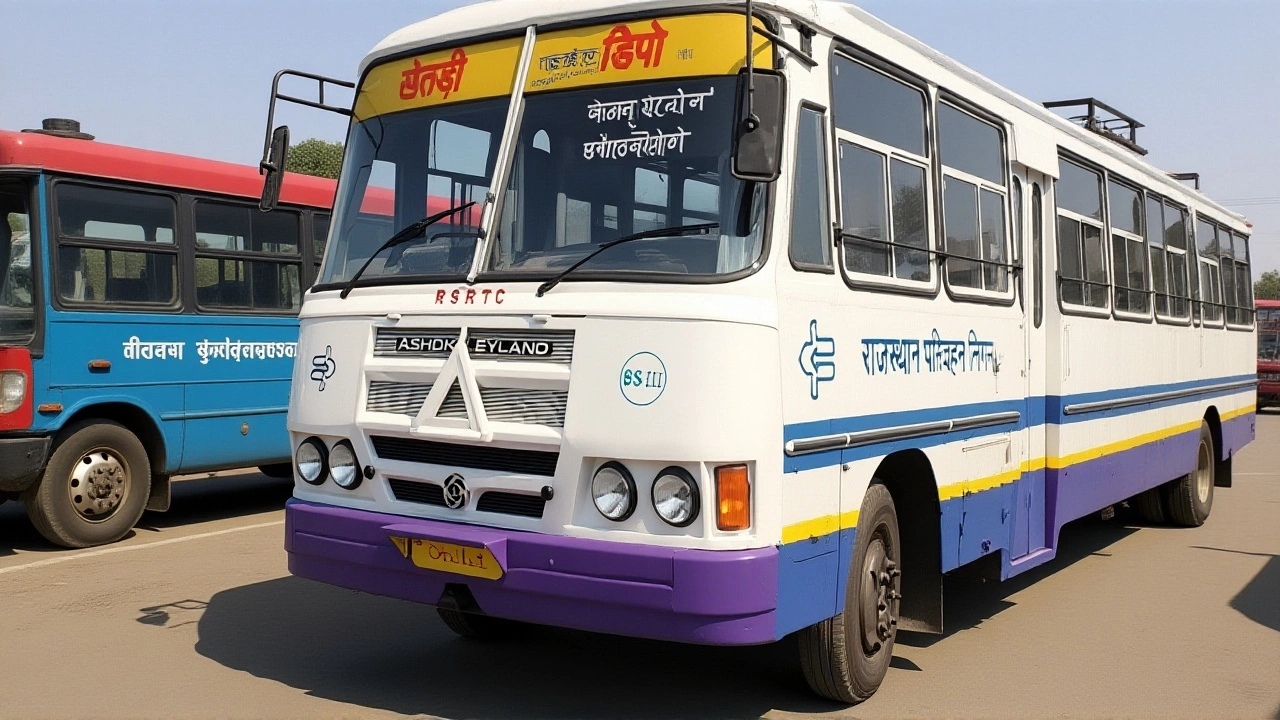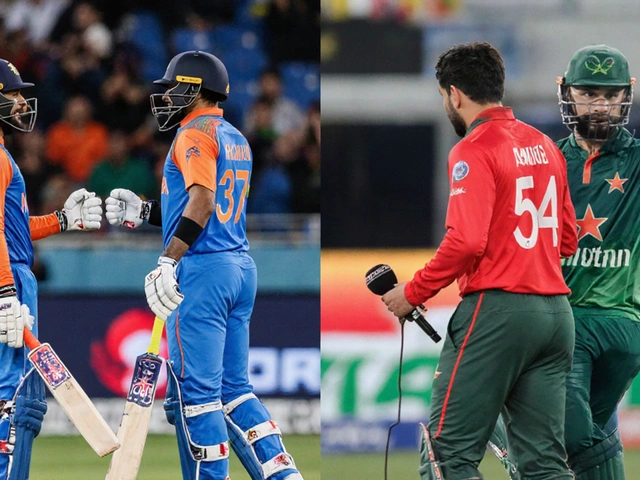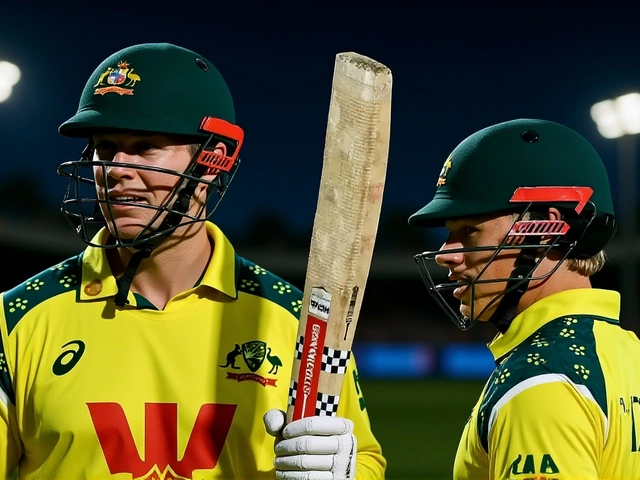
Sports November 21, 2025
International Women's Day 2025: Financial Empowerment Gifts Replace Traditional Presents
On Saturday, March 8, 2025, International Women’s Day won’t just be marked with flowers and chocolates — it’ll be defined by something far more powerful: financial empowerment. Across the globe, companies, individuals, and institutions are moving away from generic gifts toward presents that don’t just delight, but elevate. The shift is quiet but seismic. Instead of another handbag, women are receiving tools that unlock economic independence — from fair-trade candles made by survivors of trafficking to coffee beans that fund smallholder farmers in Ethiopia. And at the heart of this transformation is a landmark event: the World Bank’s International Women’s Day 2025: A Spotlight on IndiaNew Delhi, where Droupadi Murmu, President of India, will deliver the keynote alongside Annpurna Devi, Arjun Ram Meghwal, and Anna Bjerde, Managing Director of the World Bank. The message is clear: real progress isn’t measured in ribbon-wrapped boxes, but in bank accounts, business licenses, and access to capital.
From Token Gifts to Tangible Change
For years, International Women’s Day gifts were predictable: perfume, scarves, spa vouchers. Well-meaning, yes — but often fleeting. This year, the narrative has flipped. The focus is now on gifts that carry a story, a wage, a future. Enter WORK+SHELTER, the New Delhi-based social enterprise that’s become the unofficial face of this new gifting movement. Each of its products — whether it’s a $22 Celebration Candle, a $30 cookbook co-created with Women for Women International, or a $39.50 upcycled crossbody bag — comes with an impact card. Not just a thank-you note. A full narrative: the name of the woman who stitched it, her children’s names, how her salary tripled after joining the program. It’s not a gift. It’s a transaction with dignity.
And it’s working. Companies from London to Los Angeles are bulk-ordering WORK+SHELTER products for their female employees. One tech firm in Bangalore reported a 40% increase in employee satisfaction scores after switching from branded mugs to these impact-driven gifts. "It’s not about what we give," said a HR director in Pune. "It’s about who we choose to uplift. That’s the difference."
Women-Led Businesses Leading the Way
WORK+SHELTER isn’t alone. A quiet revolution is unfolding among women-led startups. Pottery With A Purpose sells DIY pottery kits that double as mental health tools — clay, glaze, and instructions packaged in recycled materials, with profits funding community art centers in rural Odisha. Sweeter Cards, a woman-run business in Mumbai, employs adults with disabilities to hand-make greeting cards stuffed with gourmet chocolate. Each card costs $18 — but the real value? A job for someone who was told they weren’t "employable."
Then there’s Portrait Coffee, a Black- and female-founded brand sourcing beans from women farmers in Colombia and Rwanda. Their single-origin roast comes with a photo and story of the grower — like Maria Ruiz, who now sends her daughter to university thanks to fair pricing. "People don’t just buy coffee," said founder Leila Okoye. "They buy into a legacy."
And for those who crave experiences over objects, Tinggly’s Superwoman Gift Box lets recipients choose from 6,000 global experiences — a hot air balloon ride in Cappadocia, a yoga retreat in Bali, a wine-tasting tour in Tuscany. "It’s not about the gift," said Tinggly’s CEO. "It’s about giving someone the freedom to choose their own joy."

Why This Shift Matters — And Who’s Paying Attention
The World Bank’s event isn’t just ceremonial. It’s data-driven. In 2024, only 37% of women in low-income countries had access to formal financial services, compared to 48% of men. In India, that gap widens: 41% of women are financially excluded, according to the Reserve Bank of India. But programs like WORK+SHELTER’s training in sewing, production management, and digital accounting have shown that when women get access to capital and mentorship, their households see 20-30% higher spending on children’s education and nutrition.
That’s why Business Standard recommends desk plants and wristrests as budget-friendly options — not because they’re glamorous, but because they signal recognition. "Even a $10 plant says, ‘I see you, and your workspace matters,’" wrote their editorial board. Meanwhile, Hindustan Times urges readers to donate to causes in a woman’s name — a $50 donation to a girls’ STEM scholarship program, for instance, can fund a year of tuition for a girl in Jharkhand.
And then there’s the luxury angle. PB Publishers International highlights three Indian brands — Bonasila, Ruby Raang, and Sadyaska — offering handcrafted silk scarves, jewelry, and home décor. These aren’t just gifts. They’re investments in artisan economies. One Ruby Raang necklace, priced at $120, supports five women artisans for a full month.

What This Means for the Future
This isn’t a trend. It’s a tectonic shift in how we measure value. When you buy a candle from WORK+SHELTER, you’re not just lighting a room — you’re lighting a path out of poverty. When you gift a pottery kit, you’re not just encouraging creativity — you’re preserving cultural heritage and funding community centers. When you choose Portrait Coffee, you’re voting with your wallet for ethical supply chains.
The World Bank’s panel on "digital literacy" is especially telling. In rural Uttar Pradesh, women trained in mobile banking are now managing microloans for their self-help groups. In Karnataka, women who learned to use Instagram to sell handmade goods saw their incomes jump by 150% in 18 months. These aren’t anecdotes. They’re evidence.
What’s next? More companies will tie bonuses to gender-equity gifting. More schools will teach financial literacy through gift-giving projects. And more women — especially those in informal economies — will begin to see themselves not as recipients of charity, but as architects of their own futures.
Frequently Asked Questions
How do gifts from WORK+SHELTER directly impact women’s economic futures?
Each purchase funds training in sewing, production, and digital accounting for women facing economic hardship in New Delhi. After training, they transition to full-time, fair-wage employment — with 78% of graduates reporting increased household income within six months. The "impact card" included with each product ensures transparency, linking buyers directly to the maker’s story and earnings.
Why is the World Bank’s event in New Delhi significant for global gender equity?
It’s the first time the World Bank has dedicated its International Women’s Day event to a single country’s financial inclusion challenges. With President Murmu and World Bank leadership present, it signals global recognition that India’s 400 million economically marginalized women are critical to global growth. The focus on capital access, mentorship, and digital literacy mirrors proven success models from Bangladesh and Kenya.
What makes a gift "financially empowering" versus just thoughtful?
A financially empowering gift creates lasting economic value — like funding a microloan, paying for a skill certification, or supporting a woman-owned business that employs others. A thoughtful gift, like a candle or mug, brings joy but doesn’t change income. The difference? One builds wealth; the other just brightens a desk.
Are these gift trends limited to India, or are they global?
While India is a focal point due to its scale and the World Bank event, the movement is global. Companies in the U.S., Germany, and Japan are sourcing from women-led cooperatives in Ghana, Peru, and the Philippines. Tinggly’s 6,000 experiences span 80 countries. The common thread? Consumers are demanding ethical provenance — and willing to pay more for it.
How can individuals support this shift without spending a lot?
Start small: Buy a $18 Sweeter Card instead of a generic card, or choose Portrait Coffee over a supermarket brand. Donate $25 to a women’s vocational fund in someone’s name. Even sharing a post about WORK+SHELTER or a local women’s cooperative helps. Impact doesn’t require a big budget — just intentionality.
What role does digital literacy play in financial empowerment for women?
In rural India, women who learned to use UPI payments and mobile banking apps increased their savings by 55% within a year. Digital literacy allows them to access government schemes, receive wages directly, and sell products online. Without it, even fair wages can be trapped in cash economies vulnerable to theft or exploitation. That’s why it’s listed alongside capital and mentorship as a pillar of empowerment.




